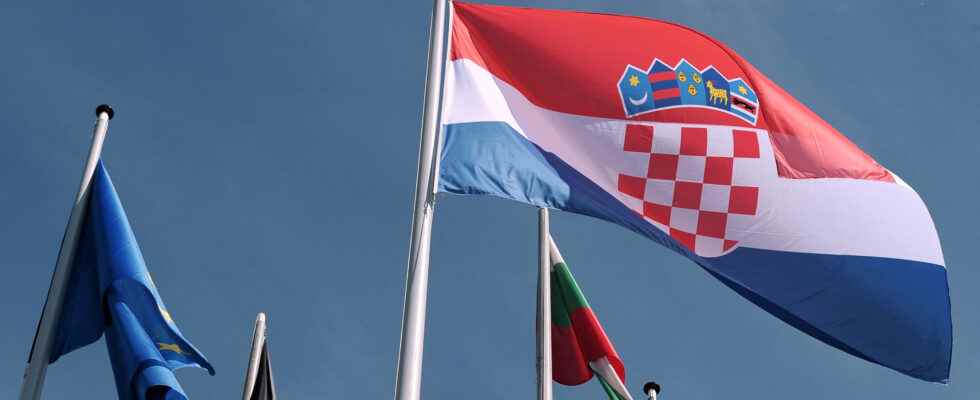Croatia will enter the Schengen area of free movement next January: Member States approved its accession on Thursday, but rejected those of Romania and Bulgaria. “Council decision adopted. It is now formally confirmed, Croatia will join the Schengen area as of January 1, 2023”, tweeted the Czech Presidency of the Council of the EU.
Last step completed! Council decision adopted – It is now formally confirmed that #Croatia join #Schengen area as of 1 January 2023. #JHApic.twitter.com/X6rgKVKOFu
— Croatia in the EU (@CroatiaInEU) December 8, 2022
With this unanimous green light from the interior ministers meeting in Brussels, Croatia becomes the 27th member of this vast area within which more than 400 million people can travel freely, without internal border controls.
Croatia will also join the eurozone
This country of 3.9 million inhabitants, member of the EU since 2013, will also join the euro zone next January. On the other hand, Romania and Bulgaria will still have to wait: their candidacies came up against the vetoes of Austria – and the Netherlands for Bulgaria, causing “a certain bitterness in the room”, according to a diplomatic source.
“I will vote today against the enlargement of Schengen to Romania and Bulgaria,” Austrian Interior Minister Gerhard Karner announced on arriving at the meeting. Austria, which is facing a sharp increase in asylum applications, feared that the lifting of border controls with these two countries would further increase the arrival of migrants.
Removal of vehicle queues at the Croatian border
The European Commission and the Parliament have been calling for a long time to include these three countries in this zone which includes 22 countries of the European Union plus Iceland, Liechtenstein, Norway and Switzerland. One of the effects of membership will be to eliminate queues of vehicles at Croatia’s borders to further encourage tourism.
In return, the Schengen member countries must assume rigorous control of the external borders of this area, and commit to police cooperation to fight against organized crime or terrorism.
In addition to Austria, another Member State, the Netherlands, has come out against Bulgaria’s entry into Schengen. The Dutch Minister for Migration, Eric van der Burg, explained on Thursday that his country had concerns about “corruption and human rights” in this country and asked for a new report from the Commission on these points. “For us it’s a yes to Croatia and a yes to Romania,” he said.
The linked Romanian and Bulgarian files
However, the case of Romania (19 million inhabitants) is procedurally linked to that of Bulgaria (6.5 million). The two former communist countries entered the EU in 2007 and have been knocking on Schengen’s door for more than ten years. The question of the enlargement of the Schengen area has returned to the table as irregular arrivals at the EU’s external borders are on the rise, after having seen a drop during the Covid-19 pandemic.
The surge is particularly marked by the Western Balkan route, where some 139,500 irregular entries into the EU have been detected since January, according to Frontex. A figure far from the 764,000 entries recorded in 2015, at the time of the refugee crisis, but which does not take into account the Ukrainian exodus. The increase in arrivals via the Western Balkans – notably via Serbia – has prompted the European Commission to present an action plan to try to reduce the influx by this route, as it has done recently for the Mediterranean route. central.
France was in favor of the entry of the three countries
Brussels proposes, among other things, to deploy the European agency Frontex not only at the EU’s borders with the Western Balkans but also between these countries. Unlike Austria, France believed that the integration of Croatia, Romania and Bulgaria into Schengen would “better respect the control of our borders” and limit arrivals via the Balkan route. These three countries have “made a lot of effort to control their borders”, said the French Minister of the Interior Gérald Darmanin, on the same line as his German counterpart Nancy Faeser.
The two ministers also met in the morning with their Dutch, Belgian and also British counterparts, in order to strengthen their judicial cooperation and the exchange of information to fight against smuggling networks. Gérald Darmanin indicated that “more than 1,100 arrests of smugglers (had taken place) in France thanks in particular to European information last year”.
